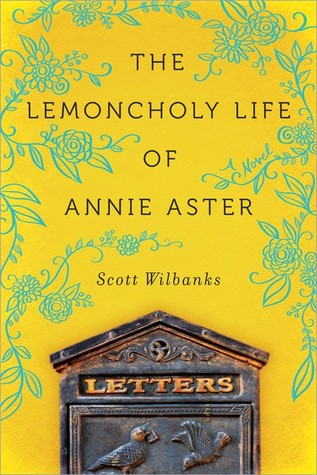Title: Girl in Glass: How My "Distressed Baby" Defied the Odds, Shamed a CEO, and Taught Me the Essence of Love, Heartbreak, and Miracles
Author: Deanna Fei
Format: Hardcover
Publisher: July 14, 2015
Source: I received a copy from the PR; however, this did not affect my review.
What's the Story?:
From Goodreads.com: "
Deanna Fei was just
five-and-a-half months pregnant when she inexplicably went into labor.
Minutes later, she met her tiny baby who clung to life support inside a
glass box. Fei was forced to confront terrifying questions: How to be
the mother of a child she could lose at any moment. Whether her daughter
would survive another day--and whether she should. But as she watched
her daughter fight for her life, Fei discovered the power of the
mother-child bond at its most elemental.
A year after she brought
her daughter home from the hospital, the CEO of AOL--her husband's
employer--blamed the beautiful, miraculously healthy little girl for a
cut in employee benefits and attached a price tag to her life, using a
phrase, "distressed babies," that set off a national firestorm.
Girl in Glass is
the riveting story of one child's harrowing journey and a powerful
distillation of parenthood. With incandescent prose and an unflinching
eye, Fei explores the value of a human life: from the spreadsheets
wielded by cost-cutting executives to the insidious notions of risk
surrounding modern pregnancy; from the wondrous history of medical
innovation in the care of premature infants to contemporary analyses of
what their lives are worth; and finally, to the depths of her own
struggle to make sense of her daughter's arrival in the world. Above
all, Girl in Glass is a luminous testament to how love takes hold when a birth defies our fundamental beliefs about how life is supposed to begin."
My Two Cents:
"Girl in Glass" is the story of Deanna Fei and her family, who were thrust into the media spotlight a couple years ago when the CEO of her husband's company stated that her child was one of the reasons that he had to cut benefits for the company. In "Girl in Glass," we see how Fei deals with the super early birth of her daughter, the hurdles that brings, and the hurdles that are brought on by the CEO with no tact. This is an incredibly powerful book that drew me in.
This book really hit home for me. Frequent visitors to A Bookish Affair probably know that I had identical twin girls in April. I did not write much about my fear while I was pregnant but I was absolutely terrified while carrying my girls. I knew that my pregnancy was high risk off the bat because of carrying twin girls. I was always quite jealous of those lucky moms only carrying one baby who seemed to effortlessly be able to carry on with their lives while pregnant. This book shows that the grass is not always greener on the other side. There are people with "normal" pregnancies where the difficult can still occur.
Fei went into labor at five and a half months pregnant and had a little girl. She takes us into the NICU, a place that is both amazing and heartbreaking, sometimes at the same time. I thought there was a good chance that my girls would end up in the NICU. Fei talks of her guilt and worry over having done something that made her daughter come so early. Having gone through that myself to some degree, she really captured that well. You really do feel helpless and like there had to have been something you could have done differently. It is hard to explain all of those feelings that you go through but Fei explains it perfectly.
This book pulled me in hard. You feel for the entire family. Without the CEO debacle, the whole situation still would have been so incredibly difficult. This book shed a light on how benefits may not be as beneficial as they could be for families in need. Those who care about families and worker's benefits will be drawn to this book. Those who are looking for a real and raw memoir will also be drawn to this one! What a read!

Guest Post:
I am thrilled to have the author here on A Bookish Affair today!
The Power of Telling Our Stories
After the birth of my second child—a birth so premature and inexplicable that the doctors called it “catastrophic”--I thought I might never write again. At the very least, I thought I could never write the story of her arrival in the world.
The circumstances of my daughter’s birth had upended everything I thought I knew about how life is supposed to begin: the long labor, the final push, the radiant perfection in the face of a new baby. That’s how my first child, my son, had been born—on his due date, no less. Everything that followed his birth had been a continuation of that story: a triumphant birth story. As I held him and nursed him and watched him flourish, I couldn’t help thinking that I must have done everything right to have a baby as healthy as this.
One year later, when my daughter arrived nearly four months premature, I struggled to even say the words, She was born. Her existence was suspended between birth and death, hope and fear, nature and science. And as I helplessly watched her cling to life support day after day, I couldn’t stop castigating myself for what I must have done wrong to cause her premature birth. Something I ate, something I touched, something I thought.
Even after she came home and seemed to thrive, the circumstances of her birth still haunted me like a terrible secret.
Then, just as she took her first steps and I finally began to breathe a little easier, my husband’s CEO publicly blamed her medical needs for a cut in employee benefits, portraying us as outsized burdens on the corporate balance sheets. He used a dehumanizing term, “distressed babies,” that set off a national firestorm. It was only as I struggled to understand how my private trauma had become the subject of countless headlines that I began to question the blame I had heaped upon myself.
I finally broke through my shame and guilt to speak out to defend my daughter’s basic humanity. Then, as the story went viral, I received an outpouring of messages from strangers across the country who embraced my daughter’s story and entrusted me with their own. Stories of premature babies, sick newborns, children who needed intensive care for any reason. They showed me the perils of a culture that blames and shames women who suffer medical crises related to pregnancy and childbirth—and taught me to absolve myself.
They brought me back to the power of telling our stories—especially when that story is the most fundamental story we tell: the story of how our children arrived in the world. And they inspired me to write GIRL IN GLASS. It’s my hope that this book will help others feel less alone, just as the stories of others helped to save me.
About the Author:
Deanna Fei is the author of the new
memoir GIRL IN GLASS, hailed as “extraordinarily beautiful” by NPR and
“an impassioned, important book” by the Washington Post. GIRL IN GLASS
was recently featured on Melissa Harris-Perry on MSNBC, PBS NewsHour, and NPR’s All Things Considered. Her
debut novel, A THREAD OF SKY, was named a New York Times Editors’
Choice and a CALA Best Book. Fei was born in Flushing, New York and
graduated from Amherst College and the Iowa Writers’ Workshop. She has
received a Fulbright Grant and a New York Foundation for the Arts
fellowship. Her essays have appeared in the New York Times, Slate, TIME,
and Fortune, among other publications. She has taught writing
and counseled at-risk youth through the Asian American
Writers’ Workshop, CASES, and New York City public schools. She lives in
Brooklyn with her husband and two children.
Connect with Deanna online:
Buy the book:
GIRL IN GLASS has been featured on PBS NewsHour, Good Housekeeping, NPR’s All Things Considered, the Guardian, Melissa Harris-Perry on MSNBC, and more
“Extraordinarily beautiful.” —Arun Rath, NPR
“An impassioned, important book.” —Washington Post
“Mesmerizing.” —Yahoo! Parenting
“Everyone must read this book.” —Melissa Harris-Perry, MSNBC






























